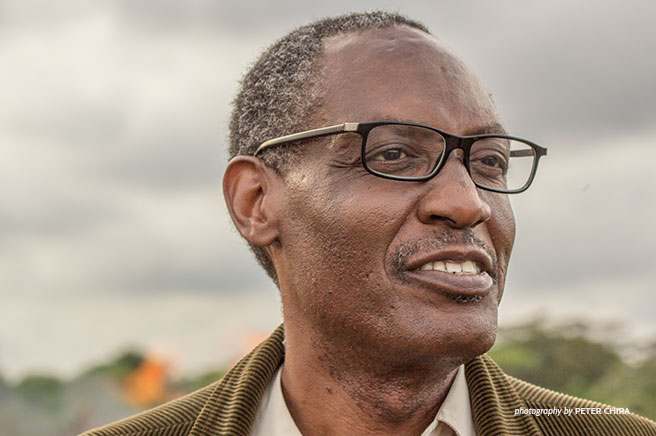The Africa Protected Areas Congress Secretariat welcomes and applauds the announcement by nine organisations – through the ‘Protecting Our Planet Challenge’ – which have pledged US$5billion over the next 10 years to support the creation, expansion, management and monitoring of protected and conserved areas of land, inland water and sea, working with Indigenous Peoples, local communities, civil society and governments.
“This announcement comes at an opportune time. Africa has a third of the world’s biodiversity, and this means that Africa is critical to safeguarding ecosystem services and benefits to humanity – and offers a global good. Global experts estimate that it will take between US$762billion and US$900billion annually to finance global biodiversity needs.
“Clearly, current commitments to global biodiversity fall short of what is required, especially in Africa; but these commitments are a great step in the right direction,” Kaddu Sebunya, CEO African Wildlife Foundation.
Philanthropic commitments – such as the Legacy Landscapes Fund (LLF), LEAF Coalition, the Rimba Collective developed by Lestari Capital, and the Finance for Biodiversity Pledge that is being driven by 78 financial institutions – are set to amplify conservation efforts, accelerate climate action, and improve livelihoods as the world builds back better.
Like these pledges, the APAC steering organisations (ghe government of Rwanda, IUCN World Commission on Protected Areas and the African Wildlife Foundation) are in the process of creating A Pan-African Conservation Trust (A-PACT).
This will provide an independent, sustainable financing mechanism for Africa’s 8,552 protected and conserved areas (P&CAs), supported by an aligned African leadership and financed through global resource mobilisation for ‘green growth’ COVID recovery.
“African nations will now more than ever be focused on green economic development, and we are witnessing tremendous initiatives for green economic growth across various African countries. However, the increasing demand for clean air, food, water and sources of energy are pushing natural systems to their limits.
“The COVID-19 pandemic’s resultant effects are on nature, losses of tourism revenues combined with reductions in government financial allocations – as there is a drastic shift in priorities to other sectors of the economy and social safeguards which has increased deficits in funding and ability to generate finance for green growth. This highlights the fragility of current conservation finance models, hence the need for concerted efforts in biodiversity conservation,” Rwanda Minister of Environment, Dr. Jeanne d’Arc Mujawamariya comments.
The significant monetary and non-monetary values of protected and conserved areas and their importance remains poorly understood and greatly undervalued. As a result, protected and conserved areas, in many instances, do not receive adequate financing or resources. Innovative and sustainable solutions are needed to resolve the current biodiversity crisis.
As Rwanda prepares to host the inaugural IUCN Africa Protected Areas Congress (APAC), set for the 7-12 March 2022, key on the agenda is creating a roadmap on how Africa’s Protected and Conserved Areas can be sustainably financed and managed.
“The Africa Protected Areas Congress marks a pivotal moment in Africa’s leap toward biodiversity conservation, and acts as an implementation mechanism to address and chart a path that balances economic growth with conservation of Africa’s natural capital.
“This must be done through strategic choices and investments driven by the best available knowledge and long-term thinking. Success will be contingent on halting and reversing biodiversity loss at national and local levels, for which protected and conserved areas represent a prime mechanism supporting multiple interventions,” says Luther Anukur, IUCN Regional Director for Eastern and Southern Africa.
The IUCN Africa Protected Areas Congress (APAC) is the first-ever continent-wide gathering of African leaders, citizens and interest groups to discuss the role of protected areas in conserving nature, safeguarding Africa’s iconic wildlife, delivering vital life-supporting ecosystem services, promoting sustainable development while conserving Africa’s cultural heritage and traditions.
IUCN’s World Commission on Protected Areas (WCPA) is the world’s premier network of protected area expertise, administered by IUCN’s Global Programme on Protected Areas. WCPA works by helping governments and others plan protected areas and integrate them into all sectors; by providing strategic advice to policymakers; by strengthening capacity and investment in protected areas; and by convening the diverse constituency of protected area stakeholders to address challenging issues.
The African Wildlife Foundation is the primary advocate for the protection of wildlife and wild lands as an essential part of a modern and prosperous Africa. Founded in 1961 to focus on Africa’s conservation needs, we articulate a uniquely African vision; bridge science and public policy; and demonstrate the benefits of conservation to ensure survival of the continent’s wildlife and wild lands.











